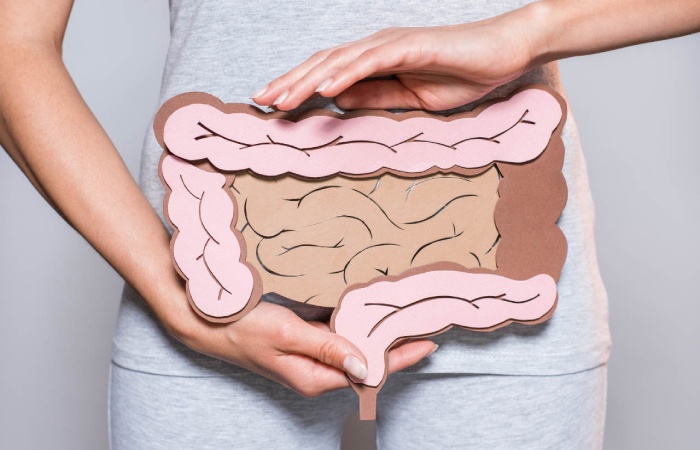It is assumed that the gut flora can lead to greater energy extraction from the diet and thus favour a positive caloric balance. Still, a specific bacterial composition has been associated with a more significant accumulation of triglycerides in adipocytes, implying energy storage in our bodies.
Most of our intestinal bacteria are Bacteroides or firmicutes, and the latter has tremendous potential for extracting energy from food. This type of bacteria increases in obese people compared to thin people, who have more bacteroidetes.
Table of Contents
The Intestinal Flora Influences your Weight
The microbiota’s role in weight loss or gain is very relevant. The microbiota is complete up of bacteria that live in your body, mainly in the intestine; they are responsible for the digestion of the food you eat. When you eat foods rich in fat (carbohydrates), these not consider food for probiotics or bacteria, so they are not processed, staying in your body and causing weight gain.
· Vegetables and vegetables make a difference
When your regular diet includes fruits, vegetables and vegetables made up of fibre, it serves as food for probiotics (good bacteria). It helps their reproduction in the body and, in turn, maintains good health.
They also allow proper digestion, giving a feeling of satiety and speeding up metabolism. When the metabolism is fast, food intake is also short, making weight loss take place.
· Study in Seattle
Scientist Christian Diener and his team at the Institute for Systems Biology in Seattle conducted a year-long study with 105 people who had their diet controlled and given an exercise program. Forty-eight individuals lost weight, and 57 kept it off. The study showed that by feeding probiotics correctly, study subjects achieved weight loss by improving their metabolism. It did not depend on the type of probiotics they had in their system but on their genetics. It was another critical factor.
· Bagovital
It is a probiotic bacterium that helps you keep the balance of the colonic irrigation vegetation and reinforce the immune system. Remember to lobby your intake with a diet rich in fruits and vegetables and perform daily physical exercises to lead a healthy and stable lifestyle.

Relationship between Obesity and Flora Bacteria
As the scientist Kristina Campbell, specialising in communication on intestinal microbiota, digestive health and nutrition and author of the bestselling book ‘Well-Fed Microbiome Cookbook’, emphasises, “there is increasing scientific evidence to suggest that obesity is, in part, an inflammatory disease. That is caused by deficient activity of the immune system. Obese individuals have immune abnormalities: Their predominant macrophages (specialized immune system cells that engulf and destroy other cells) in the body’s fatty tissue differ from those of lean individuals. And part of that close relationship between the immune and metabolic systems could have to do with the gut microbiota.”
What role do gut bacteria have in weight?
Your gut flora may impact your weight. For instance, your microbiome affects how food is absorbed and digested and how your body stores dietary fats.
The production of hunger hormones, similar to ghrelin, which control whether you feel hungry or full, may also be influenced by your microbiome. Unbalanced gut flora can raise inflammatory markers, which may cause metabolic illness and weight gain.
How to Generate the Intestinal Flora?
- Physical exercise and stress control change the type and amount of bacteria. There is a gut-brain axis that also affects the microbiota.
- Follow an anti-inflammatory diet rich in vegetables, whole grains, fish, and legumes and low in red meat.
- Increase sources of prebiotics such as non-absorbable fiber from whole grains, green leafy vegetables, or sweet potatoes cooked and chilled in the refrigerator for 24 hours.
- Avoid excess alcohol and sugar.
- Increase the variety and color of the vegetables and fruits you consume during the week.
- In restrictive dietary regimens, using prebiotics and probiotics as additions can promote the diversity and amount of healthy bacteria.
- Fast for 16 hours twice a week can recover the quality of the microbiota and facilitate weight loss.
Poor Gut Flora Produces Nutritional Deficits
And you are not only fattening and increasing body fat. It can cause you to miss out on the nutrients in the food you eat. “These healthy bacteria food has loads of nutrients like short-chain fatty acids, which are wanted for a healthy gut to absorb nutrients properly, count minerals like calcium, iron, and Mg. They also synthesize vitamins like K, B12, biotin, folic and pantothenic acid. On the other pointer, if we have dysbiosis (bacterial imbalance), we can suffer from shortages of these nutrients.”
Personalised Treatments
- Meanwhile, researchers at the Weizmann Institute in Israel have discovered how to tailor treatments to improve gut flora and reduce the risk of diabetes associated with obesity.
- Researchers recruited 1,000 participants and asked them to measure their blood sugar level every five minutes, noting their diet and how they slept and felt for a week. And found that they reacted differently to different types of food.
- “Many foods generated the reactions we expected. For example, eating foods without sugar kept blood sugar constant. While foods with sugar caused them to spike their blood sugar. But the degree to which it manifested itself varied. Much between people”, explains Eran Segal, principal investigator of this project.
- “Tomato is a food that raises levels a lot in some people, so they must control the amount they eat. While for others one food is bad, but not when combined with another.”
- Based on the information collected, the researchers developed an algorithm that can predict how their sugar levels will react with different foods based on the composition of the intestinal flora of each person.
- The researchers asked 25 participants to eat “good” foods for their blood sugar for one week and then “bad” foods.
- These diets changed the reactions in blood sugar levels and then balanced these levels.
- Segal says that our gut bacteria and blood sugar response to different foods may evolve. But that will take time, and our guts before and after the change will be more like ours. Another person.
Conclusion
In addition, different studies have observed essential changes in the gut flora of obese people concerning the bacterial composition of the flora of thin people. Therefore, his research may lead us to one more environmental factor that favours weight gain and the prevalence of obesity today.
Also Read: Automatic Espresso Machine

